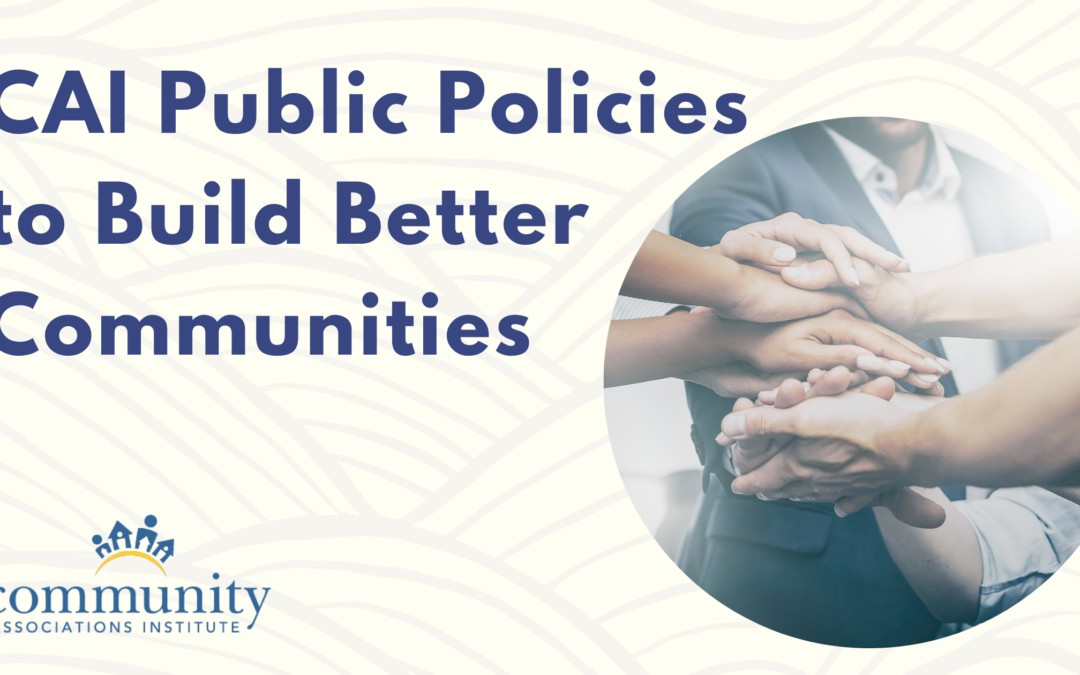In the U.S., CAI represents the interests of the more than 73 million people living in homeowners associations, condominiums, and housing cooperatives. The political views of CAI members are as diverse as that of any group in the country; therefore, developing public policy positions that serve such diversity is a challenging task. CAI focuses on the issues most important to community associations, including governance and management, community association values, and relationships with governmental departments and agencies.
When an issue arises that impacts members, CAI develops a public policy to guide volunteer advocates and staff in their advocacy efforts. As a membership organization, any of the more than 40,000 current members can propose a public policy for consideration. CAI public policies are created through a careful and ongoing process that reflects the interests of members, volunteers, and experts. The public policy positions are vetted by CAI chapters, state legislative action committees, member representation groups, and the College of Community Association Lawyers (CCAL), with final approval by the CAI Board of Trustees.
Community associations are subject to state laws that control how they are established, governed, and managed. State regulatory framework is successful in promoting healthy, vibrant communities because it is founded on the principle of local control over land use and real estate decisions. Public policies serve as statements of what CAI supports or opposes in regulation and legislation.
CAI supports effective state regulation that ensures the community association housing model is developed, maintained, governed, and managed with sound public policy objectives and standards that protect homeowners, volunteer board members, management, and the community. In addition, CAI advocates for the adoption of the Uniform Common Interest Ownership Act (UCIOA). In those states where it is not possible to adopt the act in its entirety, CAI supports and recommends consideration of appropriate portions of this framework.
Community association governance should occur at the lowest possible level. State legislatures and regulatory agencies should acknowledge the right of self-determination by owners who elect volunteer board members and have a vested interest in their own communities. CAI supports legislation that allows boards of directors and homeowners determine what is best for their community.
Below is a list of established CAI public policies. Newly adopted policies can be found at www.caionline.org/publicpolicies.



